Ethics Hub
Scenario: You’re asked to handle your client’s money
You are a Costs Lawyer working in a small costs firm. You are acting for Janet Dickens in an acrimonious divorce case. She has been ordered to pay costs. She accepts the order but refuses to pay the costs to her ex-husband directly. She says she doesn’t trust him and insists that if she sends him the money herself “he’ll just spend it straightaway and then make out I never sent it to him”. She asks if she can transfer the money to you instead, so that you can then transfer the money to her husband.
How would you advise Mrs Dickens in this situation?
Would your answer differ if you were working in an SRA-regulated firm?
- Principle 3.6 of the Code of Conduct provides that, as a regulated Costs Lawyer, you must not accept client money save for disbursements and payment of your proper professional fees. This does not prevent you from using the services of third party financial institutions, such as escrow accounts or third party managed accounts, to deal with client money (including payment of costs to or by your client) so long as the terms of those services are agreed in advance with your client.
- If you are using a third party managed account (TPMA), this does not breach Principle 3.6 because a Costs Lawyer who uses a TPMA does not accept or handle client money directly.
- In this case, you could therefore use a pre-established TPMA to pass the costs to the receiving party, you could establish a new TPMA specifically for this purpose, or you could decline your client’s request. You would not be able to transfer the costs to the receiving party through your regular office account on behalf of your client. You could also recommend alternative ways for your client to evidence the payment if she felt this was necessary.
- If you are working in a firm authorised by an approved regulator, such as the Solicitors Regulation Authority, then the firm will be able to accept client money. This is because the money will be protected under that regulator’s accounts rules, and insurance and compensation fund provisions.
- If you are practising through a body that is not authorised and has its own legal identity, such as a limited company or LLP, then any client money held by that body will not be held by you yourself. In this situation, Principle 3.6 is not directly relevant. However, you must ensure that you safeguard client money and ensure you comply with your obligations under the Code of Conduct around keeping the client informed of work and costs, professional indemnity insurance etc.
- Principle 2.4 – You must ensure that clients understand when your duties to the court will override duties owed to them and you must advise clients to comply with court orders made against them.
- Principle 3.6 – You must not accept client money save for disbursements and payment of your proper professional fees. This does not prevent you from using the services of third party financial institutions, such as escrow accounts or third party managed accounts, to deal with client money (including advance payment of your fees) so long as the terms of those services are agreed in advance with your client.
See our Guidance Note on Handling Client Money in the Costs Lawyer Handbook.
